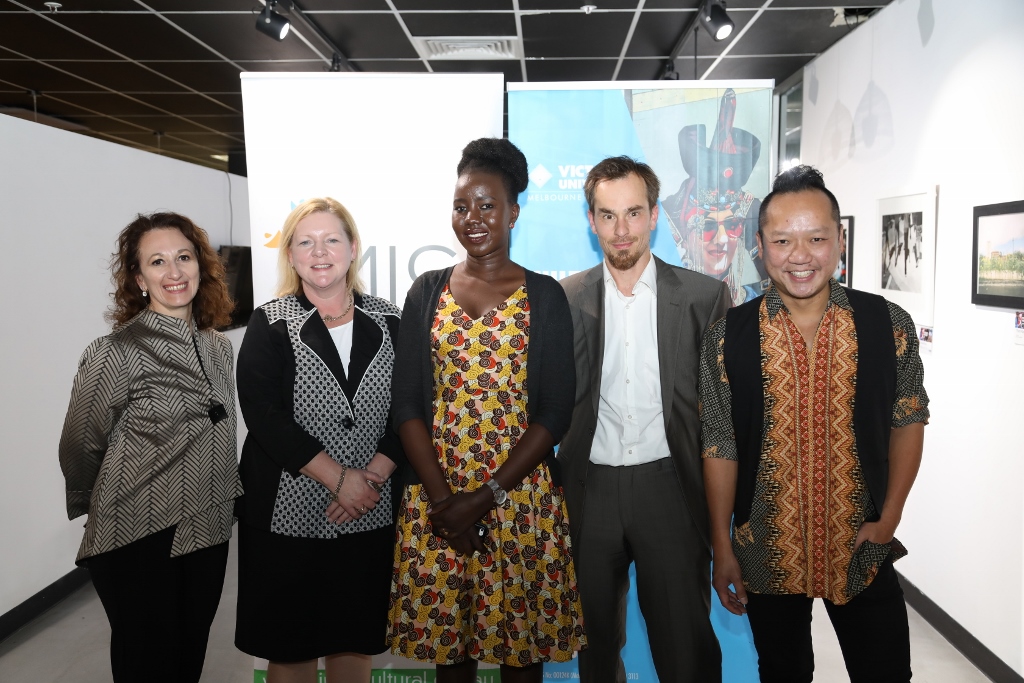Victoria University Iftar 2018
Victoria University (VU) in collaboration with the Australian Intercultural Society (AIS) hosted 80 guests at their fourth Ramadan Iftar Dinner at Victoria University’s VU at MetroWest community space on 28 May 2018.
The evening’s master of ceremonies was Professor Ian Solomonides Vice President of Teaching & Learning at Victoria University. Professor Aladin Zayegh, Associate Professor at Victoria University gave the call to prayer and Mr. Gokhan Ozkan recited several verses from the Quran; and a welcome speech was presented by Vice- Chancellor of Victoria University Professor Peter Dawkins and Ahmet Keskin, Executive Director of Australian Intercultural Society.
Professor Dawkins discussed the newly established cultural strategy at Victoria University, reminding guests of its significance when he stated that ‘many of you will be aware that we launched our cultural diversity strategy, which is a commitment to fostering rich deep intercultural connections across all areas of engagement, it commits us to creating experiences that share knowledge, connect stakeholders, promote understanding and celebrate humanity through curriculum and complimentary activities. The cultural diversity strategy formalises the part we have to play in providing a connected and globally relative university experience and a culturally inclusive, dynamic and responsible university community.’
After dinner a panel discussion moderated by Dr Teresa De Fazio, Manager, Cultural Diversity, VU with panellists Nyambol Deng Kuol – PhD Candidate, College of Health & Biomedicine, VU, Dr Mario Peucker – research fellow, Institute of Sustainable Industries & Liveable Cities, VU, Stella Smith – General Manager, Community & Government Relations, Melbourne Victory Football Club and Gary Lee – International Education Project Coordinator, City of Melbourne spoke about social cohesion being a community responsibility for all involved.
In the panel, Dr Mario Peucker spoke about social cohesion among the Muslim community not being explicitly mentioned in the work they do but it is implicitly present in different ways. According to their research, about 85% of Muslim community organisations engage in intercultural & interfaith dialogue initiatives that contribute to different social communities, which is a key component of social cohesion.
Nyambol Deng Kuol had a strong emphasis on minority representation in society, when she noted that minority groups can be looked upon from a single lens and that there can be a correlation made of the actions of an individual being perceived as representing a whole minority group. She gave her own example of the South Sudanese community being affected by a small minority like Apex where the whole community was being stereotyped in the media. She highlighted that ‘if you think less of a people that is what they will be’. Nyambol stated that the only way that we can coexist is to ‘give us the benefit of the doubt to prove that we belong, give us a sense of belonging so that we call this country home.’
Gary Lee gave some interesting statistics in relation to social cohesion with examples from international students in Australia. As of March 2018, there were 534,000 international students in Australia and 175,000 of those were in Victoria. He noted that for students one of the biggest barriers in being included in society for them is no longer homesickness but employment, where they are not given any opportunity whereby they aren’t finding work here because of their visa, their sense of belonging here takes a hit. Gary noted that we have to start changing conversations, the question ‘where are you from?’ is a reminder that you’re not from here, so if we start changing the conversations that will play a role in the way the general public conduct themselves too.
The evening concluded with audience members having the opportunity to share their reflections on the evening’s program followed by an exchange of gifts.
[Best_Wordpress_Gallery id=”143″ gal_title=”2018 Victoria University Iftar”]

